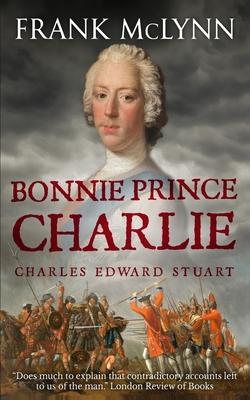'McLynn's splendid and eminently readable biography gives us not Charles the myth but the man ... as he shows, the key to understanding the prince lies in the entanglement of the inner personal drama with the tragedy played on the public stage.' Kevin Sharpe, Spectator
In this highly acclaimed biography Frank McLynn brings vividly before us the man Charles Edward Stuart who became known to legend as Bonnie Prince Charlie and whose unsuccessful challenge to the Hanoverian throne was followed by the crushing defeat at Culloden in 1746.
The prince was to play out the rest of his career dogged by a sense of failure and betrayal.
Yet Frank McLynn argues powerfully that failure was far from inevitable and history in 1745 came close to taking quite a different turn.
This insightful study also encompasses some of the other leading players of the era and its significant events, including the Gaeta Campaign, the failure of the Elibank Plot, the effective end of Jacobitism, the Pope's refusal to recognise the prince as 'Charles III' on his return to Rome and the negotiations with Choiseul over the projected French invasion of England.
Frank McLynn is a British author, biographer, historian and journalist. He is noted for critically acclaimed biographies of Napoleon Bonaparte, Robert Louis Stevenson, Carl Jung, Richard Francis Burton and Henry Morton Stanley. He is also the author of Fitzroy Maclean and Bipolar, a novel about Roald Amundsen, published by Sharpe Books.
Praise for Frank McLynn:
'The definitive biography.' TLS
'Does much to explain the contradictory accounts left to us of the man.' London Review of Books
'Frank McLynn's achievement ... is to give Charles Edward a solidarity and three-dimensional reality that he usually lacks ... His account of the risings themselves is exemplary and he offers the best case yet for the nearness to success of the '45. What is usually seen as the last shiver of an anachronistic and romantic throwback emerges as a genuine alternative to Whiggery and the Act of Settlement.' Brian Morton, TES
'A broad canvas, dealing not only with sober historical truth but with the magic spell that either seduced or repelled Fielding, Sterne, Smollett, Burns, Scott, Borrow, Buchan, Stevenson and a hundred Irish poets...' Diarmaid O'Muirithe, Irish Independent
'McLynn is to be congratulated on a great success, a work ... of mature reflection, acute judgement and great humanity.' Jeremy Black, History
'A readable and fresh study ... thoroughly researched.' Esmond Wright, Contemporary Review
'Packed with fascinating detail.' Denis Hills, choosing his book of the year in the Spectator
'Fitzroy Maclean has found his Boswell in Frank McLynn.' Trevor Royle, Scotland on Sunday
'Most entertaining.' Richard West
'Important, timely and balanced.' Soldier
